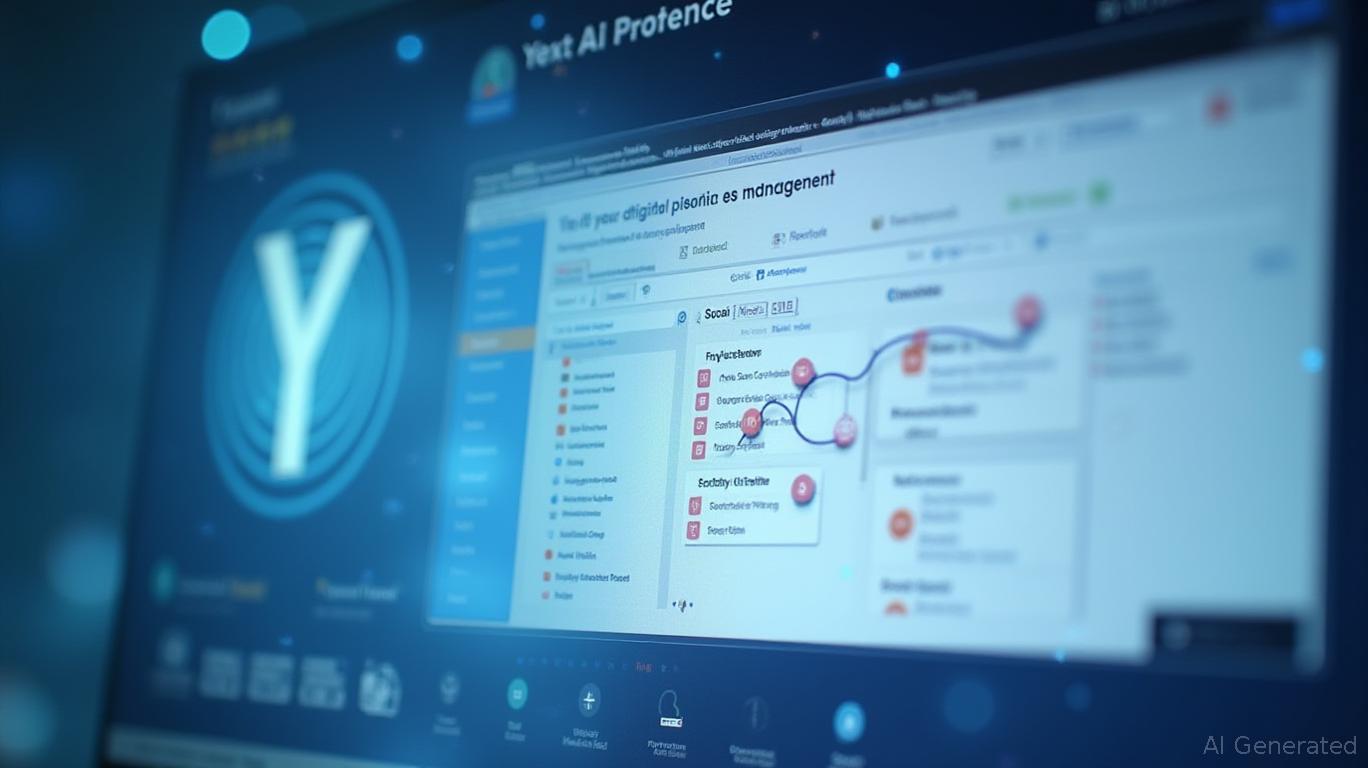Yext's AI Pivot: Can Product Innovation Justify a Turnaround?
In a digital landscape increasingly dominated by AI-driven fragmentation, Yext (YEXT) is betting its future on tools that help brands maintain control over their online presence. Over the past year, the company has launched a series of AI-powered products—Yext Research, AI Review Generation, and Yext Social—while also acquiring Hearsay Systems and Places Scout. These moves aim to position Yext as the “digital truth engine” for multi-location enterprises. But does this product-driven shift align with its financial trajectory, and is the stock undervalued relative to its growth potential?

Product Launches: The AI-Driven Growth Engine
Yext's recent innovations reflect a strategic focus on solving a growing pain point for businesses: the chaos of AI-driven search results. Its AI Review Generation tool, launched in October 2024, now supports 80+ platforms and automates responses to customer feedback, reducing manual effort. Ochsner Health, a major client, credits this tool with improving patient satisfaction scores by streamlining reputation management. Meanwhile, Yext Social, acquired via Hearsay, uses AI to generate localized social media content, which Direct Clicks Inc. says cut its content-creation costs by 40%.
The crown jewel, however, is Yext Research—a program launched in June 2025 that analyzes 2 billion data points to track shifts in search visibility. By offering benchmarks and predictive insights, it positions Yext as a partner for brands navigating AI's impact on SEO and listings. With 1,000+ companies already on the waitlist for its Scout AI agent (acquired from Places Scout), Yext is betting on these tools to drive long-term growth.
Margin Improvements: The Financial Turnaround
Yext's financial results underscore a critical shift: profitability is no longer an afterthought. In Q1 2025, Adjusted EBITDA surged 13% to $24.68 million, marking a 22.5% margin—a stark improvement from -5.7% just a year earlier. Free cash flow held steady at 33.9%, and the company raised its full-year EBITDA guidance to $103–$105 million.
CEO Mike Walrath attributes this turnaround to cost discipline and cross-selling opportunities. The Hearsay acquisition, while expensive (total $125 million), has already added $60 million in annualized revenue and brought in compliance-heavy clients in finance and healthcare—a lucrative vertical for Yext's AI tools.
Valuation: Is Yext Undervalued?
Yext's stock trades at $8.08, within its fair-value range of $6.23–$13.64. Analysts project a 16.8% upside to their average price target of $9.44, citing strong billings and margin expansion. However, the company's valuation multiples raise questions.
- EV/EBITDA of 37.6x: This is high relative to its historical average but justified by its AI-driven growth. Competitors like Zendesk (ZEN) trade at 42x forward EV/Sales, while Yext's forward P/S of 2.1x is 20% below the industry average—a potential undervaluation signal.
- Altman Z-Score of 0.02: A red flag, indicating bankruptcy risk if cash burn resumes. Yext's net loss of $23.36 million over the last 12 months underscores the fragility of its turnaround.
Risks and Considerations
Yext's thesis hinges on execution. Challenges include:
1. Customer Churn: A 2024 spike in large-customer losses rattled investors. Management claims retention rates are improving, but this must be monitored.
2. Integration Hurdles: Merging Hearsay's compliance tools with Yext's AI stack could delay synergies.
3. Market Competition: Startups like BrightLocal and larger players like Salesforce are also chasing the AI-driven SEO market.
Investment Takeaway
Yext's AI-first strategy is compelling, but its valuation demands caution. While the stock is cheap relative to its peers and growth trajectory, its high leverage and execution risks mean investors should proceed with a narrow focus. Historical performance adds nuance: A backtest of buying YEXT on positive earnings beats and holding for 30 days since 2020 shows a 17.04% CAGR, but with a maximum drawdown of -47.14% and a Sharpe ratio of 0.08. This underscores the stock's volatility, even amid growth—reinforcing the need for disciplined risk management.
Buy if:
- You believe AI-driven digital presence management is a $1 billion+ market.
- Yext's Scout and Research products deliver on their waitlist hype.
Avoid if:
- Debt levels strain profitability.
- Customer churn worsens, or sales cycles elongate due to macroeconomic pressures.
The stock's current price offers a margin of safety, but investors must weigh Yext's potential to dominate fragmented AI markets against its balance sheet risks. In a world where brands are losing control of their digital footprint, Yext's tools could be the answer—but only if its turnaround holds.
Andrew Ross Sorkin's signature style: Analytical, data-driven, and unafraid to highlight both opportunities and pitfalls.

Comments
No comments yet